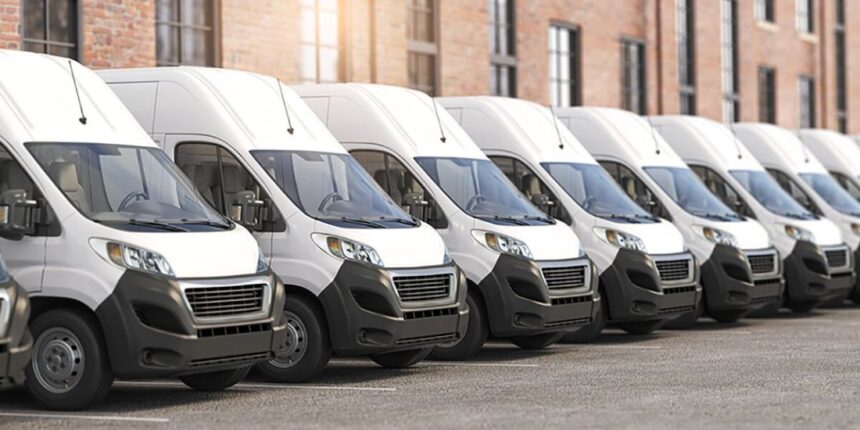In today’s competitive business environment, owning a van can be a strategic asset that enhances operational efficiency and expands service capabilities. This comprehensive guide will help you navigate the process of buying a van for business, covering everything from financial considerations to operational costs and regulatory requirements.
Identifying Business Needs
Assessing Specific Business Requirements for a Van
Before purchasing a van, assess your business’s specific needs and how the van will be used. Consider factors such as cargo volume, payload capacity, and the types of goods or services you transport. This will help you choose a van that aligns with your operational requirements.
Types of Businesses that Benefit from Vans
Various businesses benefit from owning vans, including delivery services, tradespeople (plumbers, electricians), florists, caterers, and mobile service providers. Vans provide mobility, storage capacity, and flexibility to meet customer demands efficiently.
Financial Considerations
Setting a Budget for Purchasing a Business Van
Establish a realistic budget that includes the purchase price, taxes, registration fees, and initial operating costs. Factor in ongoing expenses such as insurance, maintenance, and fuel to determine the total cost of ownership.
Financing Options: Buying vs. Leasing
Decide whether to buy or lease a van based on your financial situation and business needs. Buying offers long-term ownership benefits and potential tax advantages, while leasing provides flexibility with lower initial costs and regular upgrades.
Choosing the Right Van

Factors to Consider: Size, Payload Capacity, and Fuel Efficiency
Choose a van size that accommodates your cargo volume and payload requirements without compromising fuel efficiency. Consider the van’s dimensions, load capacity, and the terrain it will operate in to ensure optimal performance.
Types of Vans: Panel Vans, Crew Vans, Refrigerated Vans, etc.
Select the type of van that best suits your business needs. Panel vans offer ample cargo space for goods transport, while crew vans provide seating for additional passengers. Specialized vans like refrigerated or insulated vans cater to specific industries such as food delivery or temperature-sensitive goods.
Insurance Requirements
Business Van Insurance Essentials
Ensure your business van with comprehensive insurance that covers accidents, theft, damage, and third-party liabilities. Business van insurance differs from personal vehicle insurance and provides tailored coverage for commercial use.
Comparing Insurance Policies and Coverage Options
Shop around and compare insurance policies to find the best coverage at competitive rates. Consider factors such as policy limits, deductibles, additional coverage options (e.g., breakdown assistance), and insurer reputation for claims handling.
Tax Implications
Tax Benefits of Buying a Van for Business Use
Buying a van for business use offers tax advantages such as claiming capital allowances and offsetting business expenses against taxable profits. You may also reclaim VAT on the purchase price, subject to HMRC rules on business use.
Claiming VAT on a Business Van
If VAT is registered, reclaim VAT on the purchase of a business van used exclusively for business purposes. For mixed-use vans (business and personal), reclaim VAT on the proportion used for business activities.
Capital Allowances and Depreciation
Claim capital allowances to offset the cost of the van against taxable profits over several years. Depreciation allowances recognize the reduction in value over time and provide tax relief on business investments.
Maintenance and Operational Costs
Regular Maintenance Schedules and Costs
Implement regular maintenance schedules to ensure the van operates efficiently and complies with safety standards. Budget for routine servicing, tire replacements, and unforeseen repairs to minimize downtime.
Fuel and Running Expenses
Calculate fuel and running expenses based on anticipated mileage and fuel efficiency. Choose fuel-efficient vans to reduce operating costs and environmental impact, particularly for high-mileage businesses.
Managing Operational Expenses Effectively
Monitor and manage operational expenses effectively to optimize cost efficiency. Use fleet management software to track fuel consumption, maintenance records, and compliance with service schedules.
Legal and Regulatory Requirements
Registering the Business Van
Register the van under your business’s name and ensure compliance with local registration requirements. Obtain necessary permits, licenses, and certifications for operating commercial vehicles.
Safety and Compliance Standards
Respect the safety and compliance guidelines established by the relevant authorities. Conduct regular vehicle inspections, maintain roadworthiness, and install safety equipment (e.g., reflective markings, and first aid kits) as required.
Understanding Vehicle Tax and MOT Requirements
Stay informed about vehicle tax obligations and MOT (Ministry of Transport) requirements for commercial vehicles. Schedule annual MOT tests to certify the van’s roadworthiness and compliance with legal standards.
Employee Usage Policies
Establishing Guidelines for Employee Use of Business Vans
Develop clear policies outlining employee responsibilities, permitted use, and restrictions when using company vans. Address issues such as personal use, parking, reporting accidents, and maintaining cleanliness.
Monitoring and Managing Van Usage
Monitor van usage through mileage logs and GPS tracking systems to ensure compliance with company policies. Implement controls to prevent misuse, improve operational efficiency, and mitigate risks.
Buying vs. Leasing a Van
Advantages and Disadvantages of Buying a Van Outright
Buying a van provides long-term ownership benefits, tax advantages, and the ability to customize for specific business needs. However, it requires higher initial capital investment and assumes responsibility for maintenance and depreciation.
Advantages of Van Leasing for Business Use
Leasing offers lower initial costs, predictable monthly payments, and flexibility to upgrade to newer models. It preserves capital for other business investments and includes maintenance and warranty options.
Decision-Making Factors Based on Business Needs
Consider your business’s financial position, cash flow requirements, anticipated usage, and long-term goals when deciding between buying or leasing a van. Evaluate each option’s cost-effectiveness and alignment with business objectives.
Case Studies
Examples of Businesses and Their Successful Use of Vans
Review case studies of businesses that have optimized van use to improve service delivery, expand market reach, and enhance operational efficiency. Learn from their strategies and apply best practices to your business.
Lessons Learned from Real Business Scenarios
Understand the challenges and successes experienced by real businesses in managing commercial vans. Gain insights into overcoming obstacles, adapting to market changes, and achieving sustainable growth.
Conclusion
Buying a van for business purposes requires careful planning, financial analysis, and compliance with regulatory requirements. By understanding your business needs, evaluating financial considerations, and choosing the right van, you can enhance operational efficiency, expand service capabilities, and achieve long-term business success.
FAQs
What types of businesses benefit most from owning a van?
Businesses such as delivery services, tradespeople (plumbers, electricians), florists, caterers, and mobile service providers benefit most from owning vans due to their mobility and cargo capacity.
How can I choose the right size van for my business?
Choose a van size based on cargo volume, payload capacity, and operational requirements. Consider factors like the types of goods or services you transport and accessibility to delivery locations.
What are the tax advantages of buying a van for business use?
Tax advantages include claiming capital allowances on the van’s purchase price, offsetting running costs against taxable profits, and reclaiming VAT on business use.



